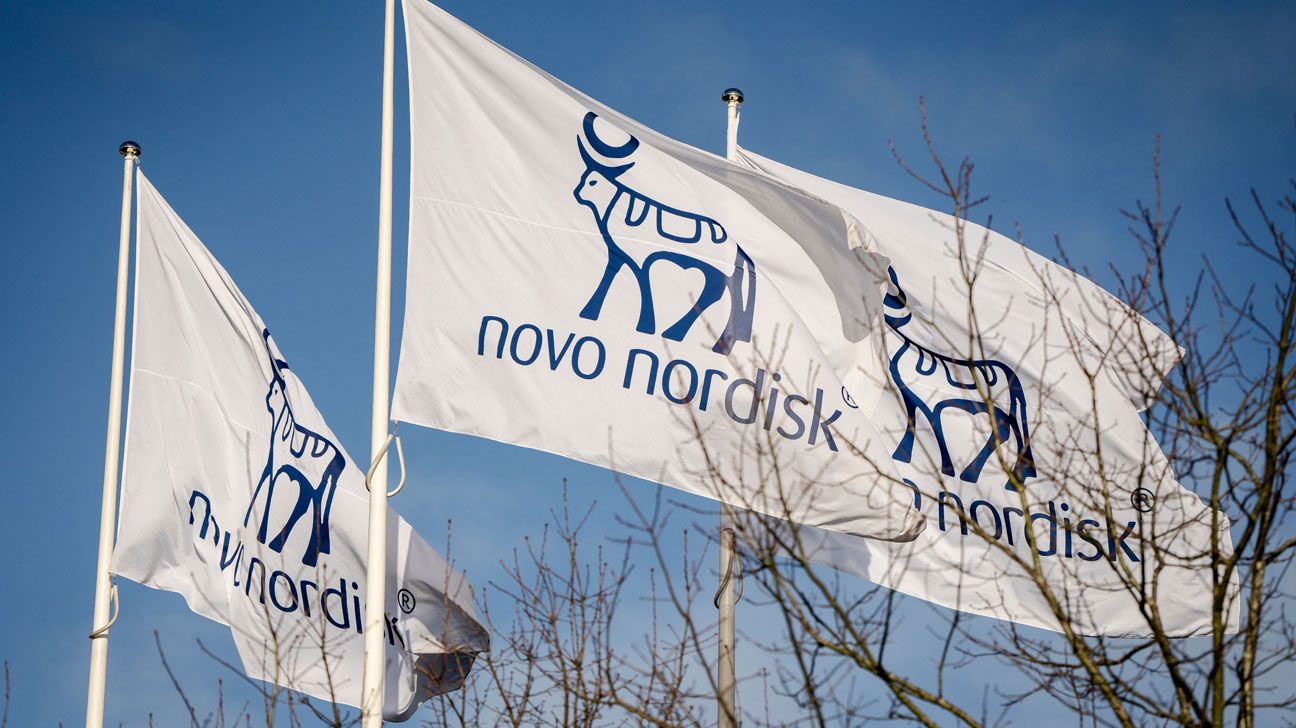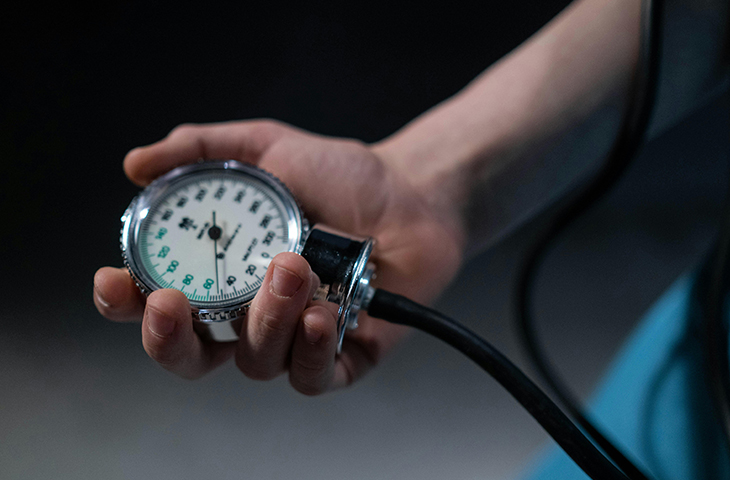Fda Accepts Novo Nordisk’s Application For Oral Wegovy: 5 Things To Know

A Wegovy weight loss pill from Novo Nordisk is forthcoming, providing an alternative to injectable GLP-1 drugs. Mads Claus Rasmussen/Ritzau Scanpix/AFP via Getty Images
- Federal regulators have accepted Novo Nordisk’s application to produce a pill version of its injectable weight loss medication Wegovy.
- Experts say an oral medication might be easier for people to use, improving their chances of adhering to a weight loss plan.
- They add it might also be less expensive, allowing more people to use these game-changing medications.
By early next year, people using a popular GLP-1 weight loss drug may be able to pop a pill instead of injecting themselves with a needle.
Officials at the Food and Drug Administration (FDA) have accepted an application from Novo Nordisk to sell an oral version of its Wegovy medication.
Wegovy is a semaglutide drug approved as a treatment for weight management as well as serious cardiovascular issues. It works by suppressing appetite and reducing blood sugar levels.
It is currently available in prefilled, single-dose injection pens. The new version would be a 25 milligram (mg) pill taken daily.
Novo Nordisk officials said they expect FDA approval late this year. There’s no word yet on exactly when the Wegovy pill will be available.
“We are entering a new era of obesity care where patients want individualized treatment plans that address their needs and provide choices, including oral formulations,” said Anna Windle, PhD, the senior vice president for clinical development, medical and regulatory affairs at Novo Nordisk, in a statement.
Weight loss pills are still in development
Novo Nordisk submitted the FDA application after a 64-week OASIS 4 phase 3 randomized controlled trial involving 307 adults with obesity.
Early results from a phase 1 trial with the drugmaker’s weight loss pill showed a 13% reduction in body weight in three months. Results from the phase 3 trial have not yet been released.
Novo Nordisk also manufactures an oral version of its GLP-1 drug Rybelsus. However, that medication is only approved to treat type 2 diabetes.
Competitor Eli Lilly is also in the process of developing a pill version of one of its weight loss medications. Company officials have reported that its drug orforglipron has significantly lowered the blood glucose levels of people with type 2 diabetes in clinical trials.
“We are pleased to see that our latest incretin medicine meets our expectations for safety and tolerability, glucose control and weight loss, and we look forward to additional data readouts later this year,” said David Ricks, Eli Lilly’s chair and chief executive officer, in a statement. “As a convenient once-daily pill, orforglipron may provide a new option.”
Weight loss pills are as effective as injections
A 2021 research review indicated that once-a-day oral pills with the active ingredient semaglutide are as effective or more effective than an injectable drug for weight loss and for reducing A1C levels in people with diabetes.
The review authors stated that oral tablets were a treatment option with “similar or better efficacy and similar tolerability” compared with most injectable GLP-1 receptor agonists.
However, the 2021 review looked specifically at people with diabetes who were receiving insulin, which could have affected the data.
A March 2025 study reported that an oral version of semaglutide drugs was associated with a lower risk of heart attack and stroke when compared to a placebo. The researchers said the pills appear to be “directly in line with what we’ve seen in the other injectable GLP-1 receptor agonists.”
However, experts say it’s too early to tell how effective an oral GLP-1 drug might be.
Mir Ali, MD, a general surgeon, bariatric surgeon, and medical director of MemorialCare Surgical Weight Loss Center at Orange Coast Medical Center in California, said initial research he has reviewed indicates that the oral form of GLP-1 drugs isn’t as effective for weight loss as the injectable form of the medications, although more studies are needed.
“The main downside is likely to be effectiveness of weight loss, but that remains to be determined,” he told Healthline.
“[The pills are] not as effective but a good option for someone who doesn’t want injections,” added Tulsi Sharma, MD, an assistant professor of medicine at the University of California San Francisco’s regional campus in Fresno.
Weight loss pills are easier to use
A weight loss pill would need to be taken daily as opposed to the once-a-week protocol for injectable GLP-1 medications.
Nonetheless, experts said oral forms of weight loss medication may still be more appealing to people on weight management plans.
“The advantages of pills are that it is easier for the patient to take a pill as opposed to an injection,” Ali said. “The pill form would likely not need to be refrigerated, so storage and transport are easier.”
Kristin Kirkpatrick, MS, RDN, the president of KAK Consulting and a dietitian at the Cleveland Clinic Department of Wellness & Preventive Medicine, said the pills might be a more pleasant choice for some people.
“There is, of course, no injection site effects and for individuals that are afraid of needles this may be a good alternative that is easier and perhaps results in higher compliance,” she told Healthline. “For example, taking a pill may seem as simple as taking a daily multivitamin.”
Sharma noted that weight-loss pills tend to have more gastrointestinal side effects.
“Pill forms are easier to administer, and less training is needed. Hopefully, we will have those with less side effects,” she told Healthline.
Weight loss pills need to be taken on an empty stomach, usually first thing in the morning before a person has eaten breakfast.
Catherine Varney, MD, DO, an assistant professor in the Department of Family Medicine at the University of Virginia School of Medicine and the obesity medicine director at UVA Health, explained that the Wegovy pill is vulnerable to enzymatic breakdown in the stomach.
“This means that patients will need to take the medication on an empty stomach, at least 30 minutes before a meal, and with only water,” she told Healthline. “This could create challenges in adherence to the medication and negatively impact efficacy.”
Varney, who serves on an advisory board for Eli Lilly, noted that the company’s new pill may be administered without food and water restrictions.
Weight loss pills may be cheaper than injections
Experts say it appears the pill version of GLP-1 drugs could be cheaper than the current injectable products.
“Manufacturing a pill is less expensive than injectables, so cost should be much less,” Ali said.
Kirkpatrick said a less expensive pill could be attractive to consumers.
“If a pill form is more affordable, that alone may make the greatest difference if effectiveness and side effects are similar to injectable forms,” she said.
Varney said a lower price will help people whose insurance doesn’t cover these medications.
“My greatest hope is that the cost of producing the oral formulation will be lower than that of the injectable versions, which will expand access for the nearly 70% of Americans who currently lack insurance coverage for weight loss medications,” said Varney.
“Other obvious advantages include scalability due to reduced manufacturing time, production cost, and need for refrigeration,” she added.
Many factors influence effectiveness of GLP-1s
Eli Lilly and Novo Nordisk both have several weight-loss medications currently on the market.
They work in similar fashion but have different active ingredients.
One class of these GLP-1 medications uses the active ingredient semaglutide. They are sold under different brand names. Ozempic and Rybelsus have been approved to treat type 2 diabetes. Wegovy is approved for use in weight management.
Another group uses the active ingredient tirzepatide. Mounjaro is approved to treat type 2 diabetes. Zepbound is approved for use in weight management. These medications are available only as injections.
Both classes of drugs have been shown to be effective in helping people lose weight, although the medications with tirzepatide have tended to be more successful in clinical trials.
“There is a shift to treating obesity as a chronic disease, like hypertension or diabetes, so patients may need to be on these medications long term,” Ali noted. “The pill form will likely reduce cost and potentially make the drug available to a larger group of people, but again, effectiveness is still a concern.”
Varney said there are a number of factors that will determine the future success of weight-loss medications.
“Factors such as patient preference, cost, insurance coverage, and variability in response to treatment can influence the widespread use of these medications,” she said.
“Additionally, this assumption oversimplifies the complexity of obesity treatment. Medications are just one piece of a comprehensive treatment plan, in which it is critical to include lifestyle changes and address the underlying behavioral and psychological factors to truly improve overall health.”


